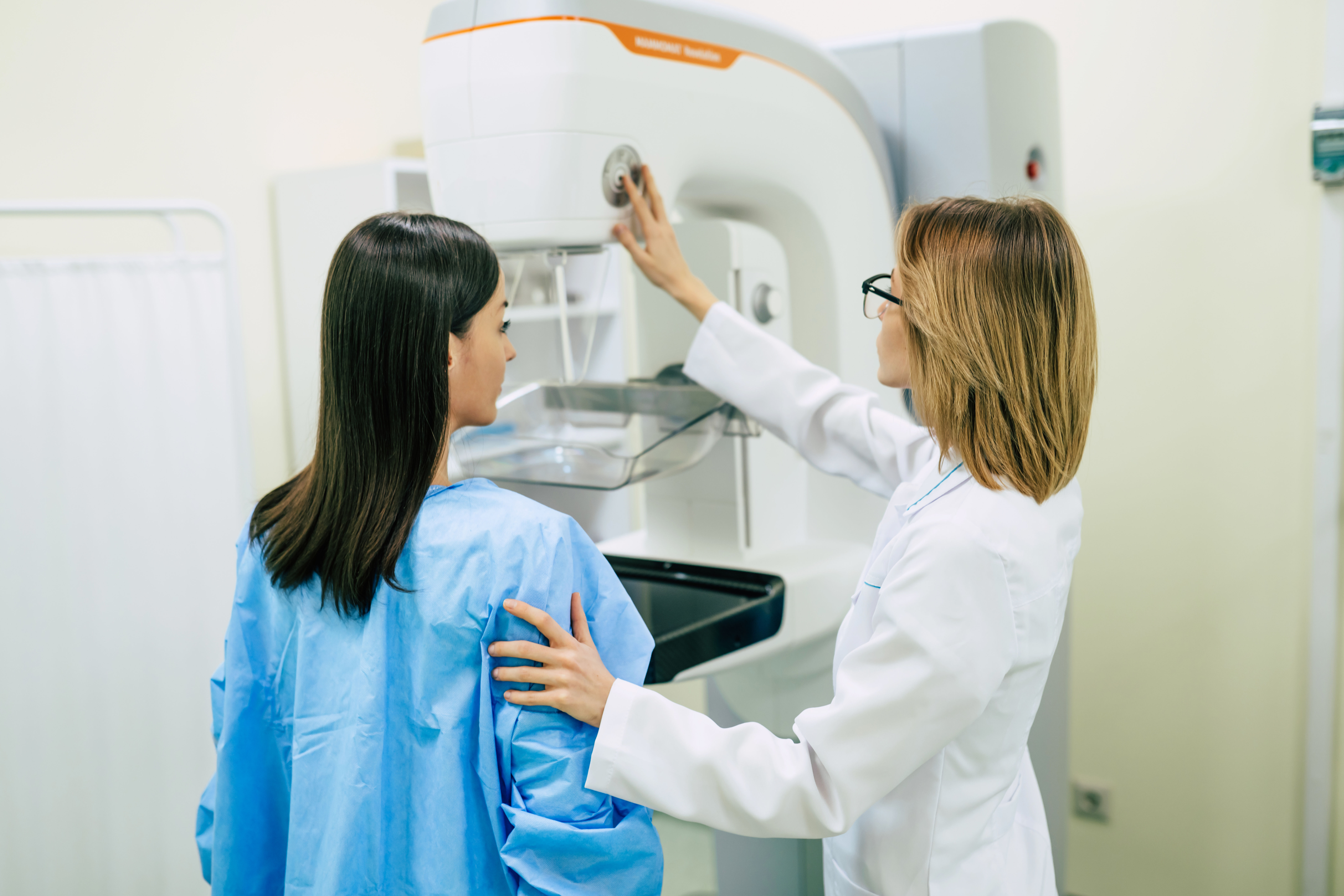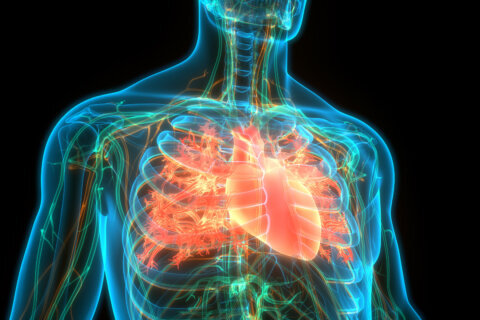This content is sponsored by MedStar Washington Hospital Center.
Heartburn or reflux may seem normal, but frequently suffering from either can be warning signs of esophageal cancer.
This cancer of the long tube that runs from the throat to the stomach can be rather rare: esophageal cancer accounts for just 1% of cancer diagnosed each year in the U.S., but the survival rate is grim with about 88% of cases resulting in death. Researchers are working to improve early detection of esophageal cancers and increase the patients’ chances of successful treatment, said Dr. Puja Khaitan, Director of Esophageal Surgery at MedStar Washington Hospital Center.
There are several factors than can lead to esophageal cancer. The No. 1 cause of it in the U.S. is reflux – which is commonly associated with unhealthy diet and obesity, Dr. Khaitan said. The stomach typically produces 1.5 liters of gastric acid to digest food, and occasionally the acid may move from the stomach to the esophagus, which causes irritation, inflammation and pain.
“When reflux is left untreated, it bathes the esophagus in acidic juice. And although the stomach is resistant to acid, the esophagus is not,” Dr. Khaitan said. “This uncontrolled reflux and constant inflammation of the esophagus then becomes a gateway to reflux esophagitis and esophageal cancer.”
While reflux is not a definite sign of cancer, leaving it untreated can cause serious health issues.
“The more vigilant and aggressive we are about treating reflux, the more malignancies we can avoid,” Dr. Khaitan said.
Adenocarcinoma is the most common type of esophageal cancer in the U.S. Adenocarcinoma is associated with genetic markers, and strong research is underway to refine that science, Dr. Khaitan said.
Squamous cell carcinoma is another type of esophageal cancer. It is more commonly associated with tobacco consumption. Squamous cell carcinoma can also occur due to frequent consumption of hot beverages that can burn the inner lining of the esophagus, as well as cured and pickled foods.
Another risk factor for esophageal cancer is achalasia, which occurs when the contents of the esophagus fail to empty into the stomach due to a muscular defect where the lower esophageal sphincter fails to relax.
“The esophagus is not meant to contain food for long periods—if food becomes lodged there, inflammation and fermentation can occur,” Dr. Khaitan said. “This can indeed foster the development of cancer.”
And consumption of chemicals can lead to esophageal cancer, too. Swallowing household chemicals can lead to burns that predispose people to develop cancer down the line. That’s why it’s so vital to keep those dangerous chemicals away from children who could accidentally ingest them.
When heartburn hits, many people reach for over-the-counter remedies such as Tums or Maalox. While they may provide temporary relief, they are not a solution to the long-term problem, Dr. Khaitan said. Prescription drugs can help reduce stomach acid production at the cellular level. Also, there is a surgical fix where the stomach is brought down into the abdomen from the chest and the lower esophageal sphincter is reconstructed.
“If you experience heartburn more than twice a week, or if it persists over weeks or months, consult your healthcare professional,” Dr. Khaitan said. “This condition is often easily treatable by a physician, so don’t risk trying to manage it long-term on your own.”
Monitoring symptoms and an endoscopy help with the diagnosis of esophageal cancer. An endoscopy is a procedure where a camera goes down a patient’s food pipe so it can examine the esophagus and stomach, Dr. Khaitan said.
Medication or surgery can often treat some pre-cancerous conditions, Dr. Khaitan said.
“With surgery, we can often correct precancerous problems like reflux and achalasia. In a very limited number of cases, squamous cell cancer—when discovered early—may even respond well to radiation and chemotherapy, with no need for surgery,” Dr. Khaitan said. “In some cases, minimally invasive surgery—called endoscopic resection—of the esophagus is possible, depending on the patient’s overall health and the stage of the disease.”
Most esophageal cancers require the removal of part or the majority of the esophagus. This tactic often includes the use of chemotherapy and radiation. After removing the esophagus, it’s important to reestablish GI continuity, Dr. Khaitan said. That often means reconstruction using the stomach to pull it up in the chest.
There are some times when the esophagus may need to be removed. In those cases, there are serious lifestyle challenges such as a feeding tube for at least the first few months after surgery. Also, patients can’t eat larger meals because the stomach can no longer store and process as much food.
“Clearly, esophageal surgeries are life-changing events and not without potential complications—all reasons why it’s vital to help prevent this cancer from occurring and to recognize early signs,” Dr. Khaitan said.
She recommends patients take steps to reduce their risk. That includes quitting smoking, consuming alcohol in moderation, keeping weight under control, and consulting a physician if long-standing GI issues such as heartburn, indigestion, diarrhea or constipation are present.
“Our Lung & Esophageal Center team provides comprehensive care for patients with the full range of benign and malignant thoracic conditions, with a focus on diagnostics and surgical treatments,” Dr. Khaitan said. “We also work closely with other specialists—dietitians, social workers, rehabilitative experts—to help each patient maintain the best possible quality of life, as they manage or recuperate from aspects of this difficult disease.”
Read more from Dr. Khaitan in a blog post on MedStar Washington Hospital Center’s website.







